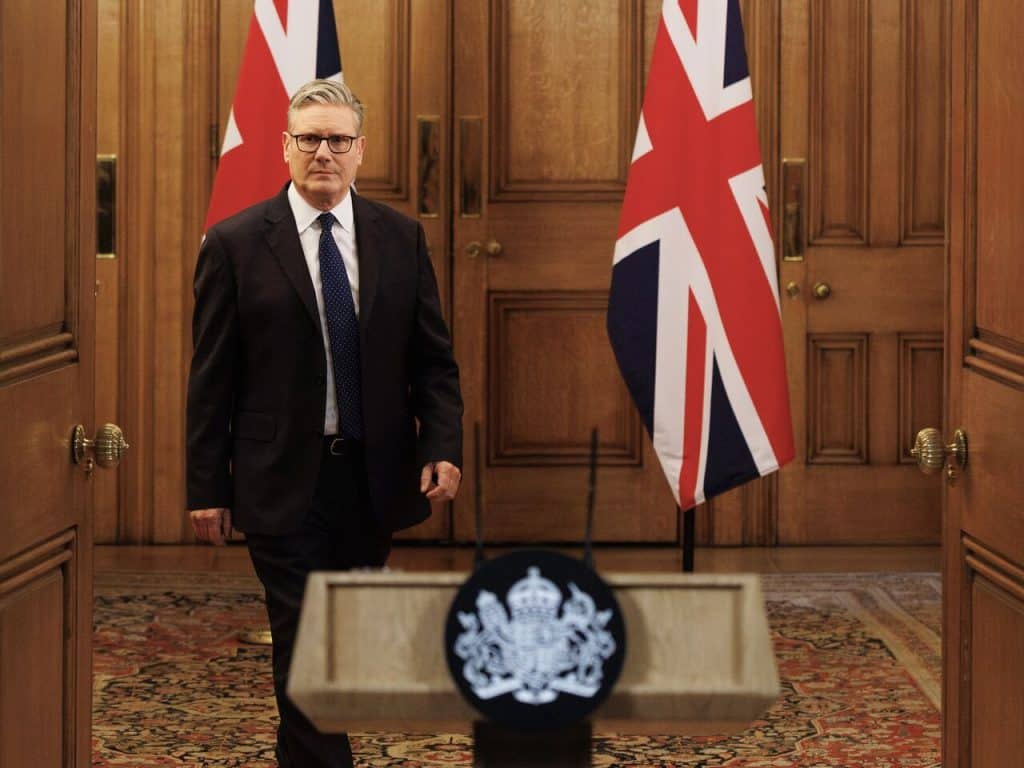Gaza: Reconstruction, or just politics?
The three-day Wilton Park meeting begins this afternoon (Monday, October 11, 2021) at the Foreign Office’s diplomatic headquarters in West Sussex. The meeting will focus on “a roadmap for reconstruction and the future of governance in the Gaza Strip,” and will bring together representatives from the Palestinian Authority, Jordan, Egypt, Germany, Italy, the European Union, the World Bank, and the European Bank for Reconstruction and Development, government sources said. The talks will be held behind closed doors and without the media.
The Wilton Park meeting is seen as a continuation of Europe’s recent efforts to redefine its role in the Gaza crisis. Last week, France hosted a similar meeting in Paris, focusing on coordinating humanitarian aid and a ceasefire, a meeting that, according to political observers, did not yield much practical results. Now, by hosting a new round of talks, London is trying to take over the Gaza reconstruction initiative from Paris and regain its political position in the future developments of the region by showing a more active face in the post-war process.
On the eve of the meeting, the British Foreign Office announced a package worth 20 million pounds to urgently support water, sanitation and basic reconstruction projects in Gaza. It is said that this aid will be spent through organizations such as UNICEF, the World Food Program and the Norwegian Refugee Council. The British Prime Minister’s Office also claimed that this measure is part of London’s commitment to play a “leadership role” in the reconstruction phase and strengthening civilian structures in Gaza.
However, political observers believe that the London plan still lacks a clear framework and there are serious uncertainties, especially about the role of Palestinian groups in the reconstruction process. Some analyses published, including on the website of the Dutch think tank Clingendael, emphasize that past experiences have shown that implementing purely construction or top-down projects, without the participation of local forces and the strengthening of independent social and economic institutions, usually leads to a repetition of the cycle of dependency and failure in sustainable reconstruction. The journal Nature also emphasized in a report that Palestinian engineers and academics must have a real participation in the design and supervision of reconstruction, and ignoring them means discrediting the reconstruction process.
Domestically, some observers and British media, including the Times and the Telegraph, have viewed London’s claim of a central role in the reconstruction of Gaza with skepticism, considering it more of a show to restore Britain’s lost influence in the Middle East. These media outlets wrote that the Keir Starmer government is promising “leadership in the reconstruction of Gaza” while it has not yet reached an agreement with its allies on the details of financial participation and the political framework.
On the other hand, Palestinian groups and civil society activists in Europe have warned against excluding the Palestinian resistance movement from the reconstruction process. In their recent demonstration, pro-Palestinian activists in London emphasized that any reconstruction without taking into account the real representatives of the people of Gaza would be illegitimate and short-lived. They have called on the British government to focus on the internal capacity and real needs of the people of Gaza, rather than “reconstruction from the outside.”
Overall, the assessments are based on the premise that the London initiative is more than a way to reconstruct Gaza physically, it is an attempt to restore the political credibility of the West and restore Britain’s diplomatic prestige in the Middle East. Britain is trying to repair its image in the eyes of public opinion with plans of “reconstruction” and “good governance,” but the reality is that without the presence of real representatives of the Palestinian people and a clear definition of financial mechanisms, no plan for the reconstruction of Gaza will be successful. Therefore, many observers believe that the Wilton Park meeting, although symbolically important for London, is in practice more of a political show to rebuild Europe’s lost credibility in the Middle East than a starting point for rebuilding Gaza.

